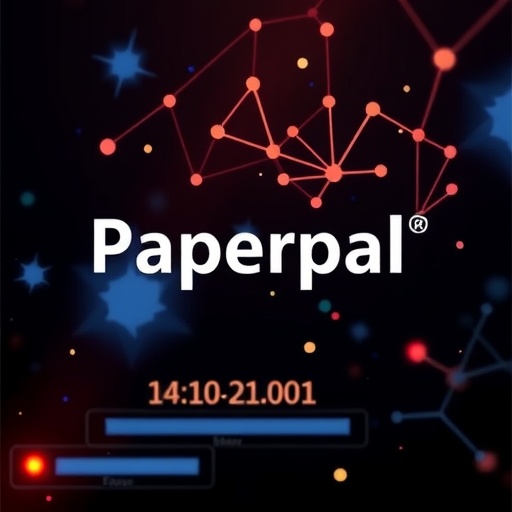In an era where artificial intelligence is rapidly transforming every facet of academia, Cactus Communications (CACTUS) has announced a paradigm shift in its flagship product, Paperpal. Originally conceived as a writing assistant, Paperpal now redefines its role to become a comprehensive AI-driven research companion tailored for the academic community. This evolution reflects a strategic commitment to empower students, researchers, and institutions with tools designed to support clarity, authenticity, and ethical scholarship amidst the growing integration of AI in education and scientific publishing.
At the core of Paperpal’s renewed mission lies the ambition to deliver an AI toolkit that enhances human intellect rather than replacing it. This distinction is critical in addressing the palpable concerns echoed by academics worldwide, many of whom fear that AI may compromise the originality and integrity of their work. In a recent survey conducted by Paperpal among 1,440 academics, over half expressed apprehension regarding potential threats to authorship authenticity and the distortion of unique academic perspectives. Paperpal’s approach directly confronts these fears by embedding transparency and responsible AI usage at every layer of its operation.
The technical infrastructure of Paperpal exemplifies an advanced, secure-by-design ecosystem. Utilizing state-of-the-art encryption protocols and privacy-first architecture, the platform guarantees that user data is never leveraged to train AI models, a commitment that sets it apart in the competitive landscape of AI tools. This ensures that researchers’ unpublished work, sensitive data, and intellectual property remain confidential and protected from exposure or misuse, mitigating long-standing security risks associated with cloud-based AI services.
Paperpal’s suite of capabilities is far-reaching, encompassing functionalities that streamline the academic workflow from literature review to manuscript submission. The platform supports reading comprehension through AI-driven summarization, fosters writing clarity by detecting language nuances and grammatical subtleties, and automates citation management in compliance with various academic standards. These technical features collectively provide a seamless interface where scholars can marshal their research and writing tasks efficiently without compromising scholarly rigor.
An integral aspect of Paperpal’s innovation is its ethical framework built into the AI tools. The platform incorporates in-built “guardrails” and nudges that encourage users to disclose AI assistance transparently, thereby maintaining the academic principle of integrity. This responsible AI usage model is reflective of a broader industry trend emphasizing the need for AI systems to augment rather than obscure human contributions, particularly in scientific communication where authenticity is paramount.
Compliance with global standards further reinforces Paperpal’s suitability for the academic environment. It adheres strictly to FERPA regulations, ensuring the protection of student educational records, and aligns with the European Accessibility Act (EAA) and WCAG 2.1 Level AA standards, underscoring its commitment to inclusive and accessible AI tools. This level of compliance facilitates adoption by diverse educational institutions, ranging from universities to research centers, that must navigate complex regulatory landscapes.
Paperpal’s versatility is expanded through its multi-platform availability, which ensures that its AI assistance is accessible regardless of preferred workflows. Whether users are composing manuscripts in Microsoft Word, collaborating in Google Docs, drafting technical documents in Overleaf, or engaging with browser-based tools via the Chrome extension, Paperpal integrates seamlessly. This cross-platform presence enhances productivity and allows for real-time assistance, a critical component in accelerating the pace of scholarly output without sacrificing quality.
From the leadership perspective, Akhilesh Ayer, CEO of Cactus Communications, emphasizes the philosophical underpinnings of this transformation. He articulates a vision wherein AI acts as a facilitator of human expertise, bolstering diverse academic voices rather than homogenizing them. This vision is particularly relevant in an age where the explosion of scientific information necessitates reliable, scalable, yet nuanced assistance for knowledge creation and dissemination.
Nishchay Shah, Group CTO and EVP of Products & AI, elaborates on the sophisticated technological foundations underpinning Paperpal. He highlights that future academic AI tools must transcend mere speed enhancements to embody trustworthiness, responsibility, and domain-specific customization. Paperpal’s architecture exemplifies this by combining cutting-edge AI methodologies with features meticulously crafted for academic workflows, producing a secure, intuitive ecosystem that optimizes each researcher’s potential.
As academia grapples with mounting pressures to publish prolifically amidst increasingly competitive environments, Paperpal’s approach arrives as a timely innovation. It provides not only individual users but also entire institutions with tools that are future-ready, emphasizing user experience and ethical AI integration. Collaborative efforts with leading academic organizations exemplify a shared commitment to advancing scholarship equipped with responsible AI assistants.
The potential of Paperpal’s toolkit extends beyond mere writing assistance to fostering better science communication. By facilitating clear, concise, and properly cited manuscripts, it aids researchers in making their findings accessible to broader audiences and accelerating the translation of knowledge. This aligns well with the evolving role of academia in society, where effective communication is vital for informed decision-making and public trust.
Looking ahead, Paperpal’s strategic evolution signals broader implications for the integration of AI in scholarly ecosystems. Its secure, compliance-driven, and human-centric design demonstrates how emerging technologies can coexist harmoniously with traditional academic values. This fusion promises an academic future where AI is not a threat but a catalyst for elevating the quality, authenticity, and impact of research worldwide.
Paperpal invites the scholarly community to experience this transformation firsthand with its tagline: “AI that brings out the best in you.” As this next generation of AI tools gains traction, it stands to redefine academic norms, ensuring researchers maintain control over their intellectual contributions while benefiting from enhanced productivity and integrity safeguards.
Subject of Research: Artificial Intelligence integration in academic research and writing assistance
Article Title: Paperpal Transforms Academic AI with a Responsible, Secure, and Comprehensive Research Assistant
News Publication Date: Not specified
Web References: Not specified
Image Credits: Paperpal
Keywords: Scientific community, Education, Academic publishing, Science communication




